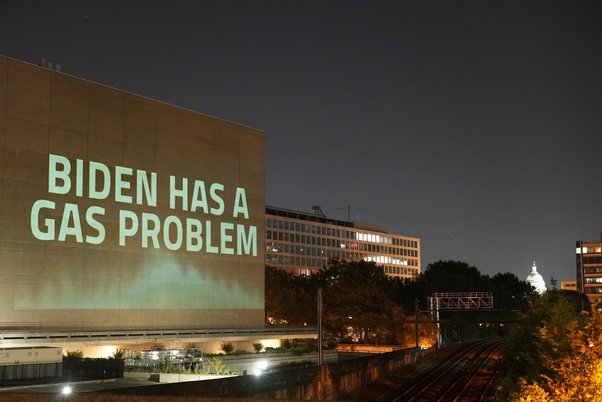A third of the gas received at Fluxys’ Zeebrugge and Dunkirk ports since February 2022 came from Russia
As the EU agrees new sanctions targeting Russian liquified natural gas (LNG), Global witness reveals that Belgian gas giant Fluxys helped to export an estimated €10.7 billion worth of Russian LNG since Russia attacked Ukraine in 2022– money that could be fuelling Putin’s war crimes.
Fluxys’ LNG terminals at Zeebrugge and Dunkirk, which generate revenue for the company by providing services to LNG shippers, have received 22.1 billion cubic metres of Russian LNG since the invasion on 24th February 2022, according to Global Witness analysis of data from the trade analytics firm Kpler.
Over a third of the LNG handled by Fluxys at Zeebrugge and Dunkirk during this period came from Russia. This suggests that a significant proportion of the company’s income from providing services to LNG shippers derives from Russian cargoes. Fluxys made a pre-tax profit of €178 million on €910 million revenues from servicing LNG shippers at Zeebrugge and Dunkirk over 2022 and 2023.
94% of the Russian exports handled by Fluxys during this period came from the Yamal LNG production project in northwest Siberia, according to Kpler data. Fluxys has a long-term contract with Yamal to service cargoes of Russian LNG. This includes storing the fuel and transferring it from ship-to-ship, which facilitates its onwards passage to third countries.
Pascal De Buck, Fluxys’ CEO, is on record as saying that the contract, which was signed in 2015, guarantees payments to Fluxys from the Yamal project worth €1 billion over 20 years, even if it receives no cargoes of LNG from Yamal.
Yamal is majority owned by the Russian firm Novatek and 20% owned by France’s TotalEnergies. A previous Global Witness investigation found that gas produced by both companies was linked to Russian military supply chains. Novatek, whose CEO is a close ally of Vladimir Putin, is accused of recruiting and paying mercenaries for the Russian army in Ukraine.
LNG is a key source of revenue for Moscow’s war chest. EU sanctions have choked off Russia’s profits from oil and coal exports to the bloc, while its earnings from flows of pipeline gas to Europe have also drastically reduced.
LNG’s importance for Russia’s war effort was underlined in November 2022, when the Kremlin increased taxes on Russian LNG exporters to help counter sanctions and fund its occupying forces. This raised Yamal’s corporate tax rate from 20% to 34%. Research by the NGO Bond Beter Leefmilieu suggests that over 2022 and 2023, flows of Yamal LNG through EU ports for onwards shipment to third countries generated €2.3 billion in tax revenues for the Russian state.
Today Brussels imposed a partial ban on Russian LNG, by barring EU ports from servicing Russian LNG cargoes for onwards shipment to other regions.
Analysis suggests this would stop only a quarter of the €8 billion trade in LNG from Russia to the EU. The sanctions would not affect imports of Russian LNG for domestic use within EU member states.
Campaigners are calling for a total ban on Russian LNG shipments to the EU, and for Western companies that profit from Russian fossil fuels to fund reconstruction in Ukraine.
Dominic Eagleton, senior fossil fuels campaigner with Global Witness said: “Not only is Fluxys helping Russia to fund its war machine with money from gas exports, it’s also raking in profits from this deathly trade. Piecemeal sanctions on Putin’s LNG are not enough to stop billions in blood money flowing back to the Kremlin – we need a total ban on imports of Russian LNG alongside a fast, fair and full EU phaseout of gas by 2035.”
Responding to Global Witness’s request for comment before sanctions were announced, Fluxys stated that its Zeebrugge and Dunkirk terminals are required to conduct business according to the legal principle of open access, and that as an independent infrastructure operator, it has no control over the origin or destination of the LNG. Regarding EU sanctions, Fluxys said it is monitoring policy developments closely and if sanctions are imposed, the company will fully comply.
Notes to editor:
Global Witness analysed data from Kpler, a commodity intelligence platform that tracks shipments of oil and gas products. It collects data from a variety of sources, including AIS signals, port authorities, shipping agencies, and customs records. Kpler data was filtered to isolate LNG shipments from Russia to Zeebrugge and Dunkirk, departing from 24th February 2022 to 31st May 2024. The euro value of the LNG was calculated using data published by the Centre for Research on Energy and Clean Air (Russia Fossil Tracker: https://www.russiafossiltracker.com/).
Fluxys is the majority owner of both the Zeebrugge and Dunkirk terminals, holding 90% of the former and 61% of the latter. All revenue and profit figures are those reported by Fluxys as the company’s final figures for its ownership share.
Fluxys does not report post-tax profit for its Zeebrugge subsidiary. As such, pre-tax profits have been used for both Zeebrugge and Dunkirk.


